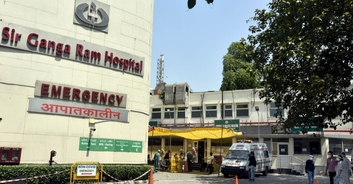Doctors have completed a pioneering surgery by conducting the very first heart transplant from a dead donor, the Mirror reports.
The breakthrough operation saw surgeons at Duke University's Division of Cardiovascular and Thoracic Surgery complete the first adult 'donation-after-death' (DCD) transplant in the US.
Following the unprecedented feat, Dr Jacob Niall Schroder, Director of the Heart Transplantation Programme at the North Carolina-based university, posted footage of the 'dead' heart beating outside of its body on Twitter.
Check out the extraordinary video here:"1st adult DCD heart in the USA!!!! This is the donor pool actively expanding," the doctor wrote alongside the video.
The technique employed by the medical team involves removing a heart from someone who has been pronounced dead and placing it inside a live body. Incredibly, the heart can be preserved and kept beating for up to eight hours after being removed from the donor.
Neither the donor nor the recipient of the heart has been identified but the surgery has paved the way for others in need of a heart transplant.

But while this was the first DCD heart transplant to be completed in the US, the method has been used a number of times in the UK since 2009, with DCD donation now representing 39% of all deceased organ donors, per the Mirror.
The UK's National Health Service explained:
"The success of the UK DCD programme can be attributed to the resolution of the apparent legal, ethical and professional obstacles to this model of donation. The underpinning principle of the programme is that donation can on many occasions be legitimately be viewed as part of the care that a person might wish to receive at the end of their lives.
"Various publications and professional documents have supported the introduction of controlled DCD programmes into the UK, and they should form the basis for the local policies that describe how this type of donation is incorporated into a patient’s end of life care"



.jpg_vmv4yw?tr=h-184)
